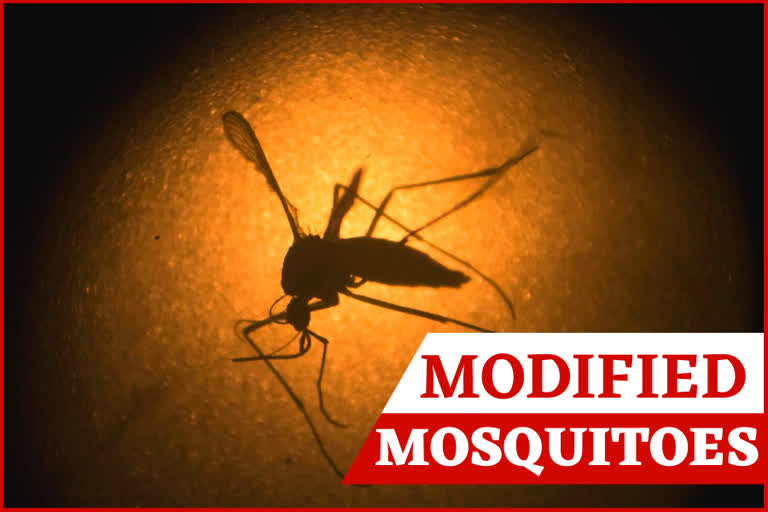St. Petersburg: Sometime next year, genetically modified mosquitoes will be released in the Florida Keys to combat persistent insect-borne diseases such as Dengue fever and the Zika virus.
The plan approved this week by the Florida Keys Mosquito Control District calls for a pilot project in 2021 involving the striped-legged Aedes aegypti mosquito, which is not native to Florida. But it does transmit several diseases to humans, particularly in the Keys island chain where nearly 50 cases of Dengue fever have been reported so far this year.
The plan by the Oxitec biotechnology company is to release millions of male, genetically-altered mosquitoes to mate with the females that bite humans because they need the blood. The male mosquitoes, which don't bite, would contain a genetic change in a protein that would render any female offspring unable to survive — thus reducing the population of the insects that transmit disease, in theory.
Kevin Gorman, an Oxitec scientist, said Thursday in a phone interview from the United Kingdom that the company has successfully done such projects in the Cayman Islands and Brazil.
“It’s gone extremely well," Gorman said. "We have released over a billion of our mosquitoes over the years. There is no potential for risk to the environment or humans.”
Read |Greenland lost 586 billion tons of ice in 2019
Oxitec points to numerous studies by government agencies, ranging from the Environmental Protection Agency to the US Centers for Disease Control and Prevention, that underscores the safety of the project. Several Florida government agencies have approved it as well.
Yet, some people worry about using genetically-modified organisms, or GMOs, that they believe could alter the planet's natural balance. At a meeting Tuesday of the Florida Keys mosquito control board, several people questioned the wisdom of the project.
